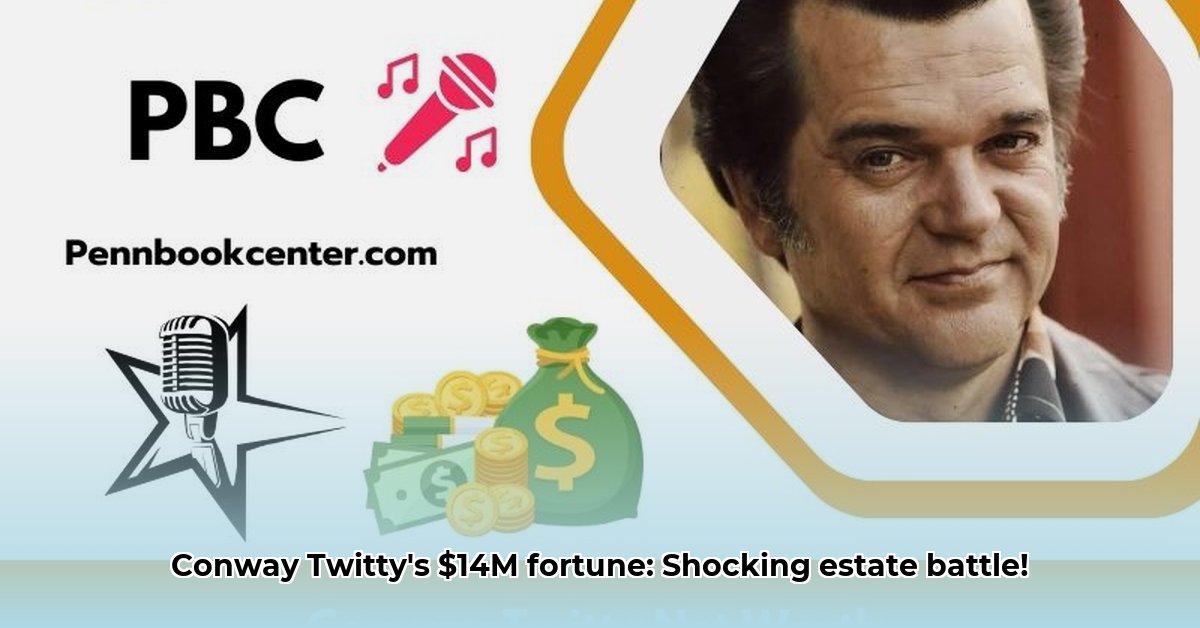
Conway Twitty's Net Worth and the Aftermath
Conway Twitty, the rhinestone cowboy and country music legend, left behind a legacy far beyond his chart-topping hits. His death in 1993, at the age of 59, from an abdominal aortic aneurysm, revealed a $14 million fortune and a subsequent legal battle that underscored the critical importance of estate planning, particularly within the high-stakes world of entertainment. While his music continues to resonate, the story of his estate highlights the complexities and potential pitfalls faced by high-net-worth individuals in the music industry. This wasn't just about dollars and cents; it was a clash of wills, impacting not only his family but also serving as a cautionary tale for future generations of artists. Did the lack of comprehensive planning cost his family more than just money?
Estimates place Twitty's net worth at approximately $14 million at the time of his death. This substantial sum reflected decades of success, spanning 57 studio albums, countless sold-out tours, and a devoted fanbase. His iconic hits, such as "It's Only Make Believe," solidified his status as a country music icon. However, this financial success was tragically overshadowed by the legal disputes that followed his sudden passing. What might have been a smooth transfer of wealth instead became a protracted and emotionally draining legal process.
The legal battles that ensued after Twitty's death involved his widow, children, and business partners, highlighting the vulnerabilities inherent in lacking a comprehensive estate plan. The fight wasn't just about dividing assets; it was about control, legacy, and the future of his musical empire. While specific details of the settlement remain confidential, the prolonged conflict underscores the high stakes of neglecting estate planning. The lack of clear guidelines left a considerable opportunity for conflict and delayed the distribution of his estate.
How much of his fortune could have been saved had a comprehensive plan been in place? The answer is elusive but points to a critical lesson for musicians of considerable means.
Lessons Learned: Estate Planning for Musicians
The aftermath of Conway Twitty's death serves as a stark reminder of the importance of proactive estate planning, particularly for musicians with high net worth. The challenges unique to the music industry—irregular income streams, complex business arrangements, and the emotional complexities of family dynamics—underscore the need for careful consideration and detailed planning.
Key Takeaways:
- Comprehensive Legal Counsel: Seek out specialized advice from entertainment lawyers and estate planning experts. Their understanding of the industry's nuances is paramount.
- Detailed Asset Inventory: Create a meticulous inventory of all assets, encompassing music rights, royalties, real estate, investments, and other holdings. This forms the bedrock of effective estate planning.
- Strategic Trust Structures: Explore the use of trusts (revocable or irrevocable) to protect assets, manage distribution, and offer privacy. Professional advice can guide the optimal choice.
- Succession Planning and Tax Optimization: Determine clear inheritance structures, including beneficiaries and contingencies. Consult tax professionals to minimize tax liabilities and comply with all relevant regulations.
- Regular Plan Reviews: Life changes necessitate regular reviews and updates to the estate plan to account for altered circumstances.
Beyond the Balance Sheet: Conway Twitty's Enduring Legacy
While the legal battles surrounding Conway Twitty's estate cast a shadow, his musical legacy remains vibrant. His music continues to be enjoyed by generations, solidifying his place in country music history. His story, however, serves as a compelling case study, showcasing not only artistic triumph but also the human cost of inadequate financial planning. The lasting impact of his life underscores the need for meticulous estate planning, not just for the protection of financial assets, but for the preservation of family unity and the artist’s vision long after the music fades. The story of Conway Twitty's $14 million fortune is a testament to the power of legacy planning — and its absence.